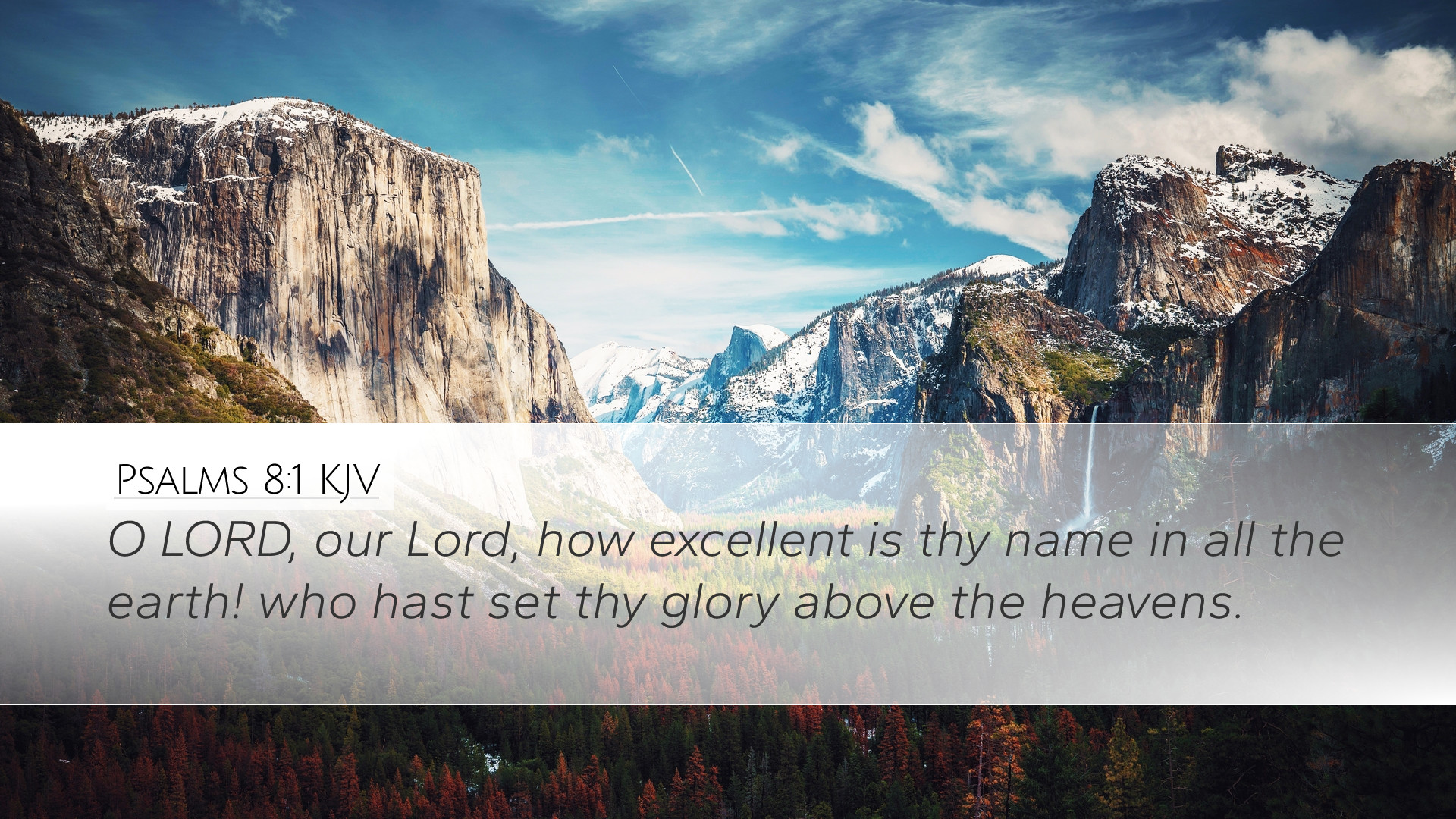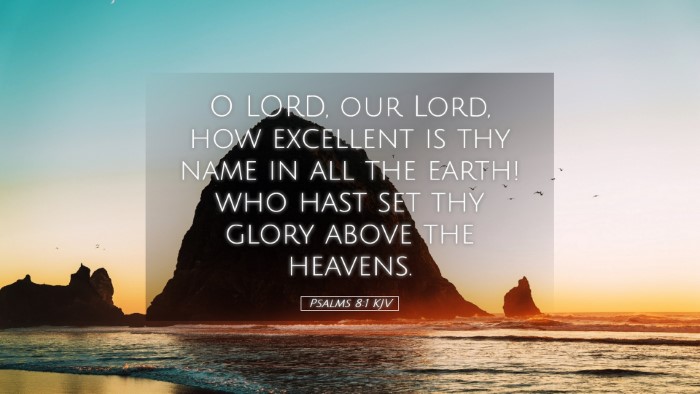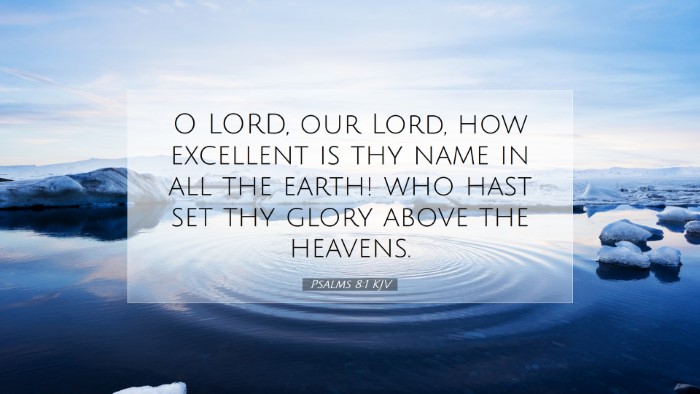Psalms 8:1 - Commentary and Insights
Verse: "O Lord, our Lord, how excellent is thy name in all the earth! who hast set thy glory above the heavens."
Introduction
The verse of Psalms 8:1 stands as a powerful declaration of worship, highlighting the majesty and glory of God. It serves as an invitation to the reader to recognize the divine excellence that is manifested in God's creation, while also contemplating humanity's place within that creation. The insights drawn from various public domain commentaries, including those of Matthew Henry, Albert Barnes, and Adam Clarke, provide a rich tapestry of understanding relevant for pastors, theologians, and students of the Bible.
The Name of God
This psalm begins with an exclamation, emphasizing the greatness of God's name. As Matthew Henry notes, the invocation "O Lord, our Lord" not only acknowledges God's sovereignty but also establishes a deeply personal relationship between God and humanity.
- Divine Relationship: The usage of "our Lord" indicates a closeness and intimacy, suggesting that God is accessible and relational.
- God’s Excellence: "How excellent is thy name" speaks to the awe and reverence that should characterize our response to God’s nature.
God's Glory in Creation
Continuing with the verse, the phrase "who hast set thy glory above the heavens" is significant. According to Albert Barnes, this reflects on God's glory as being unparalleled and even beyond the highest heavens. The glory of God can be seen throughout creation, pointing humanity to the magnificence of the Creator.
- Dominion Over Creation: God's glory being above the heavens suggests that no celestial body can compare to His majesty.
- Implication for Humanity: Reflecting on this grandeur, Adam Clarke highlights that all of creation exists under God's sovereignty, inviting us to acknowledge our humble position in contrast.
Theological Themes
Several theological themes emerge from this verse, emphasizing God's transcendence and immanence. The commentaries suggest that these attributes reveal the dual nature of God as both high above creation and yet personally involved in the lives of humankind.
- Transcendence: God's glory being above the heavens denotes His supreme power and holiness, far exceeding human understanding.
- Immanence: Despite His exalted position, God is still intimately involved with His creation, deserving of our worship and reverence.
Human Significance
As the psalm progresses, discussions surrounding the significance of humanity within God’s creation come to the forefront. The initial verse serves as a launchpad to ponder the incredible stature bestowed upon human beings in light of God's majesty.
- Created in His Image: The subsequent verses illustrate that despite the grandeur of the cosmos, humanity is made in God's image, an astonishing reality noted by many scholars.
- The Responsibility of Stewardship: With this honor comes the responsibility of stewardship over creation, which is a recurring theme within the biblical narrative.
Practical Application
For pastors and ministry leaders, the insights gleaned from Psalms 8:1 offer a profound foundation for teaching about worship, identity, and our relationship with God. The recognition of God's glory should inspire a life of praise and reflection within personal faith as well as within communal settings.
- Sermonal Implications: This verse can be the central theme in sermons focusing on divine sovereignty, human dignity, and stewardship.
- Encouragement in Worship: It serves as a reminder of the importance of worship that acknowledges God's greatness while embracing our identity as His creation.
Conclusion
Psalms 8:1 encapsulates essential truths about God’s glory and our place in His creation. By synthesizing insights from Matthew Henry, Albert Barnes, and Adam Clarke, this commentary emphasizes the majesty of God's name, the significance of His creation, and the profound relationship that believers share with Him. This verse is a powerful reminder that worship stems from recognizing God's excellence and responding to it in reverence and gratitude.


